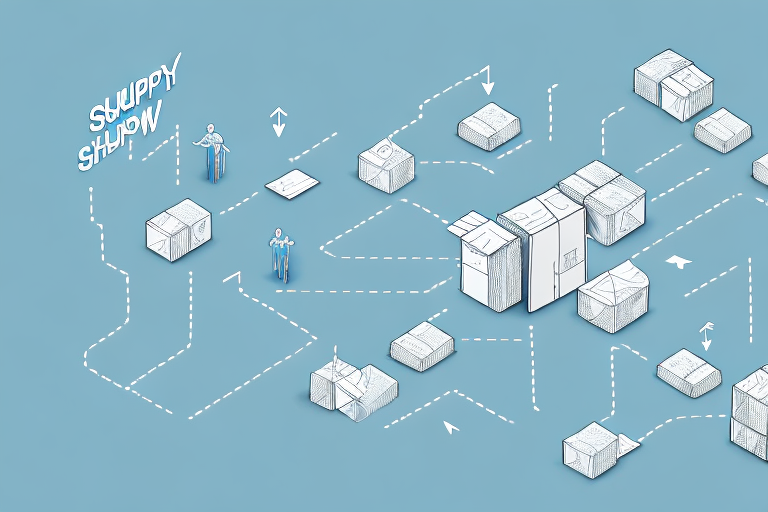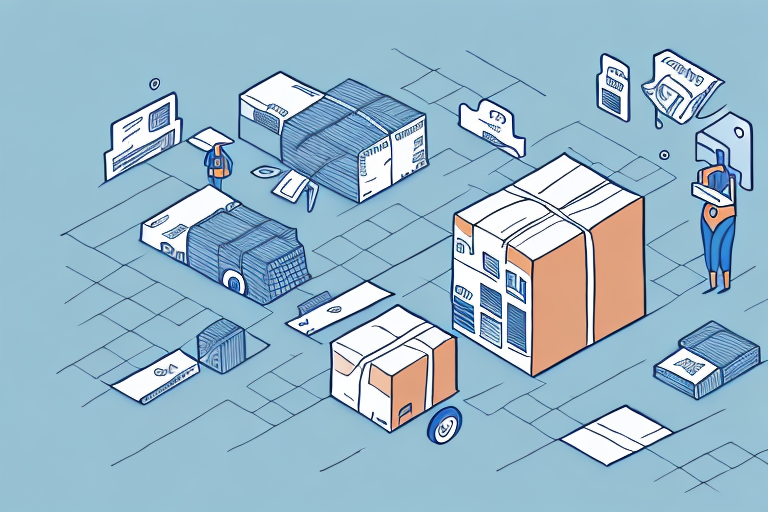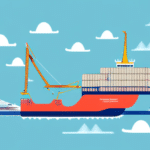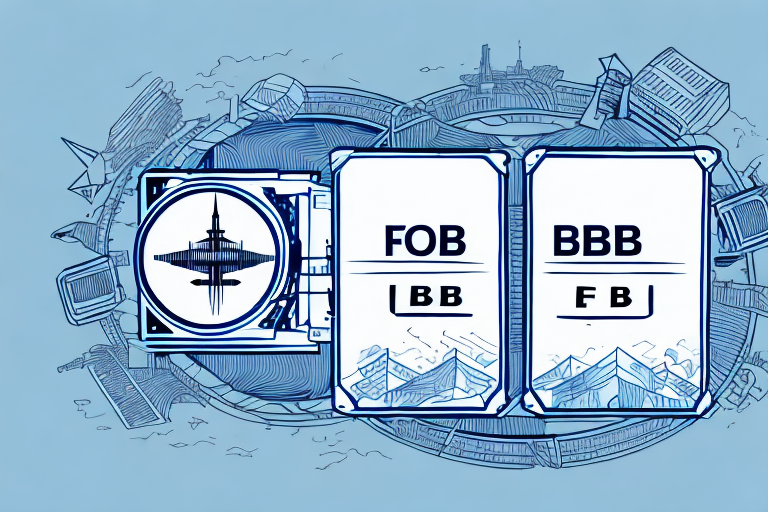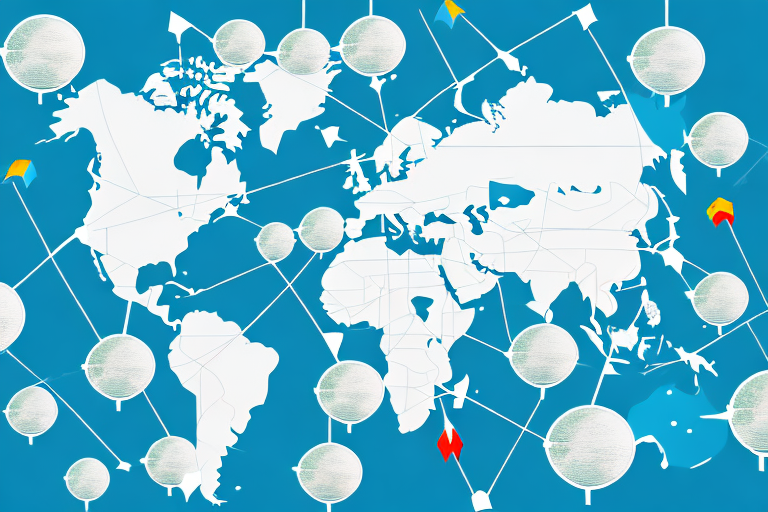What Is a Notify Party in a Supply Chain?
In international trade, numerous parties are involved in the supply chain. One such party is the notify party, often abbreviated as NTFY or N/P. The notify party plays a vital role in the smooth operation of the supply chain, ensuring that goods are transported from the point of origin to their final destination efficiently and effectively.
Understanding the Role of a Notify Party in International Trade
The notify party is a designated entity responsible for receiving notifications related to the shipment of goods. Acting as an intermediary between the buyer and the seller, the notify party facilitates communication and ensures that all parties are aware of the shipment's status at all times.
The responsibilities of the notify party can vary depending on the specific situation. These may include:
- Submitting documentation related to the shipment, such as bills of lading or customs declarations.
- Receiving and relaying information between the various parties involved in the supply chain.
- Coordinating with freight forwarders, shipping agents, or directly with the buyer or seller.
While the notify party is not always a mandatory requirement in international trade, it is highly recommended to designate one to ensure smooth communication and avoid potential misunderstandings or delays in the shipment process.
Clear designation of the notify party in shipping documentation is crucial to prevent any confusion or miscommunication. This can be achieved by explicitly listing the notify party's details in shipping instructions and bills of lading.
For more detailed guidelines, refer to the ShipScience Shipping Documentation.
The Importance of a Notify Party in Supply Chain Logistics
Effective communication is a cornerstone of successful supply chain management, and the notify party is central to facilitating this communication. By keeping all parties informed of the shipment's status, the notify party helps to:
- Prevent delays by anticipating and addressing potential issues early.
- Mitigate risks associated with logistics and transportation.
- Improve overall efficiency by ensuring timely updates and coordination.
Moreover, the notify party serves as a critical point of contact for customs officials and regulatory bodies. They provide necessary documentation and information to ensure compliance with all relevant regulations, thereby avoiding costly fines and delays at customs. According to a report by the International Trade Union, efficient customs clearance can reduce shipping times by up to 20%.
Additionally, the notify party assists in coordinating transportation and logistics, working with carriers and service providers to ensure that shipments are transported efficiently and cost-effectively. This coordination often involves managing multiple modes of transportation, such as air, sea, and land, and ensuring proper packaging and labeling for each segment of the journey.
Notify Party vs. Consignee: What's the Difference?
It's essential to distinguish between the notify party and the consignee in the shipping process:
- Consignee: The person or entity designated as the recipient of the goods, responsible for accepting delivery and ensuring the goods are received in good condition.
- Notify Party: The entity responsible for receiving notifications related to the shipment, facilitating communication, and ensuring all parties are informed about the shipment's status.
While their roles may overlap, the consignee is ultimately responsible for the receipt of goods, whereas the notify party focuses on the administrative aspects of communication within the supply chain.
It's worth noting that the notify party is typically not liable for damages or losses during the shipment process. Liability usually falls on the consignee or the carrier, depending on the shipping agreement's terms. However, the notify party plays a crucial role in promptly communicating any issues or delays, minimizing potential disruptions to the supply chain.
Common Challenges Faced by Notify Parties in Supply Chain Management
Despite their critical role, notify parties often encounter various challenges, including:
- Language Barriers: Navigating communication with international partners who speak different languages.
- Documentation Requirements: Managing extensive and complex shipping documentation, which varies by country and shipment type.
- Changing Regulations: Keeping up with the constantly evolving regulations and policies governing international trade.
- High Volume of Notifications: Handling a constant stream of notifications and updates for multiple shipments simultaneously, which can lead to delays or misunderstandings.
- Lack of Supply Chain Visibility: Limited visibility into the entire supply chain can hinder effective tracking and timely delivery of shipments.
- Technological Adaptation: Adapting to new software and systems essential for modern supply chain management, which may require additional training and resources.
Addressing these challenges involves implementing robust communication strategies, investing in advanced supply chain management technologies, and continuous training for notify parties to stay updated with industry best practices.
How to Choose the Right Notify Party for Your Business
Selecting the appropriate notify party is crucial for the seamless operation of your supply chain. Consider the following factors when making your choice:
- Experience and Expertise: Assess the notify party's experience in your specific industry and their understanding of its unique logistical challenges.
- Track Record: Evaluate their history of successful communication and coordination in previous shipments.
- Additional Services: Opt for a notify party that offers complementary services, such as customs clearance or freight forwarding, to streamline the supply chain process.
- Geographic Presence: If your business operates internationally, choose a notify party with a presence in relevant regions to ensure localized monitoring and coordination.
- Communication Channels: Establish clear and reliable communication channels, outlining expectations for updates and notifications.
Building a strong partnership with your notify party can enhance the efficiency and reliability of your supply chain operations. For more insights, visit the ShipScience Guide to Choosing a Notify Party.
Best Practices for Effective Communication with Your Notify Party
To maintain smooth and efficient communication with your notify party, implement the following best practices:
- Clear Communication Channels: Establish and maintain clear lines of communication, ensuring that all parties have access to necessary contact information.
- Regular Updates: Schedule consistent updates and notifications to keep all stakeholders informed about the shipment's status.
- Timely Documentation: Provide all required documentation and information promptly to prevent delays or complications.
- Contingency Planning: Develop contingency plans for unforeseen circumstances, such as providing alternative contact information or backup procedures in case of communication breakdowns.
- Professionalism: Maintain a professional and courteous tone in all interactions to build trust and a positive working relationship.
Implementing these practices ensures that your notify party can effectively manage shipments, reducing the risk of delays and enhancing the overall efficiency of your supply chain.
The Legal Responsibilities of a Notify Party in Shipping and Transport
Notify parties may bear certain legal responsibilities in the shipping and transport process, including:
- Compliance with Regulations: Ensuring that all necessary permits, licenses, and documentation are in place and that shipments comply with international and local regulations.
- Accurate Documentation: Maintaining accurate and up-to-date shipment records, which are essential for audits and legal compliance.
- Liability Management: While notify parties typically are not liable for damages during transit, they must ensure that all information shared is accurate to prevent legal disputes.
Understanding these legal responsibilities is crucial for notify parties to operate effectively and avoid potential legal issues. Collaborating closely with legal advisors and staying informed about regulatory changes can help notify parties fulfill their obligations.
For more information on legal responsibilities in shipping, refer to the ShipScience Legal Resources.
How to Ensure Smooth Operations with Your Notify Party in the Supply Chain
Ensuring smooth operations with your notify party involves providing them with the necessary tools and fostering effective communication. Here are key steps to achieve this:
- Access to Real-Time Tracking: Equip your notify party with real-time tracking and monitoring systems to enable timely updates and proactive issue resolution.
- Training and Support: Offer comprehensive training and ongoing support to help your notify party manage the complexities of international trade and supply chain logistics.
- Clear Communication Protocols: Establish and adhere to clear communication protocols, ensuring that all parties are informed of any changes or updates promptly.
- Regular Check-Ins: Schedule regular meetings or check-ins to discuss ongoing operations, address any concerns, and provide feedback.
- Strong Partnership: Build a strong working relationship based on trust, reliability, and mutual respect to enhance collaboration and efficiency.
By implementing these strategies, you can enhance the effectiveness of your notify party, leading to smoother and more efficient supply chain operations.
The Future of Notify Parties: Trends and Innovations in Supply Chain Management
As global trade becomes increasingly complex, the role of the notify party is evolving. Future trends and innovations shaping this role include:
- Technological Advancements: Adoption of technologies like blockchain and artificial intelligence (AI) to streamline supply chain processes, enhance transparency, and improve communication efficiency.
- Sustainability Focus: Emphasis on sustainable and environmentally responsible practices, with notify parties ensuring compliance with sustainability standards and implementing green logistics strategies.
- Data Analytics: Utilization of advanced data analytics to predict and mitigate risks, optimize routing, and enhance decision-making processes.
- Integration with IoT: Integration of Internet of Things (IoT) devices for real-time tracking and monitoring of shipments, providing greater visibility and control.
- Enhanced Collaboration Tools: Use of collaborative platforms and tools to facilitate better coordination among all parties involved in the supply chain.
By embracing these trends and innovations, notify parties can significantly improve their efficiency and effectiveness, helping businesses stay competitive in the dynamic global marketplace.
For more insights into future trends, visit the ShipScience Future Trends Report.
Conclusion
The notify party plays an indispensable role in the supply chain, ensuring that shipments progress smoothly from origin to destination. By understanding their responsibilities, overcoming common challenges, and leveraging best practices, businesses can enhance their supply chain efficiency and reliability. As the landscape of international trade continues to evolve, the notify party's role will become even more crucial, driven by technological advancements and a growing emphasis on sustainability.
For comprehensive solutions and support in managing notify parties and optimizing your supply chain, explore the resources available at ShipScience.













